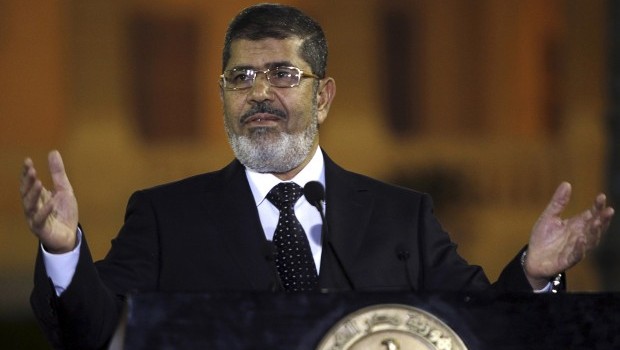Nobody would have put forward this idea, namely the collapse of the Egyptian state, if the most senior Egyptian military official, Defense Minister Abdel Fattah al-Sisi, had not sounded the alarm bell, warning that the continuation of conflict between the country’s various political factions could lead to the collapse of the state. Neither the Egyptians, nor the Arabs, nor indeed the world at large could bear such a terrifying idea. Regardless of their different positions, the Egyptian people must never allow total chaos to take hold and for the state of Egypt-which the people laud as being one of the oldest in the world, with roots dating back seven thousand years-to collapse. The Defense Minister’s statement contains numerous connotations.
In addition to alerting Egypt’s blinded politicians regarding the reality of the situation, this also represents a warning that the army will not stand idly by while the country burns, and will therefore intervene, not just to impose a curfew-as requested by President Mohamed Mursi—but possibly go further than this and declare martial rule, establishing military rule that could last for years in a repetition of the Algerian experience.
Prime responsibility for preventing the collapse of the state, and subsequent military rule, falls on the shoulders of President Mohamed Mursi If he is not able to bring opposing factions together and convince them to work under his leadership-by reaching common ground on controversial issues-then we may truly be witnessing the collapse of the second republic of Egypt.
As for why Mursi should be personally held accountable for the collapse of state, this is because he is the only one capable of redressing the mistakes his government and party have made over the past few months. It is clear that Mursi is not the sole president, for he is sharing this post with Muslim Brotherhood leadership figures, particularly de facto Supreme Guide Khairat al-Shater. This can be clearly seen in the contradictions between the president’s speeches and rhetoric and his actual decisions. With the exception of Mursi’s recent speech imposing a curfew on the Egyptian cities hit by unrest, the president’s rhetoric is usually reconciliatory. As for the presidency’s actual decisions on the ground, these have all been hostile.
The battle over the constitution exposed this contradiction, ending with the imposition of a draft constitution that broke all the promises and pledges that had previously been made by the president. This draft constitution was then put to a public referendum against the people’s will, while also undermining the independence of the Constitutional Court and the judiciary in general. These are all factors that eventually led to the current crisis which might trigger the collapse of civilian rule.
Mursi is now facing two choices: reconciliation or confrontation. Through reconciliation, he can build a state for everyone and return the rights stripped from the Egyptians in this constitution that was predominately drafted by his supporters in violation of the principles of democracy. He should also approve an election law in which issues such as candidacy, vote count, and legal disputes are not under his authority, but rather fully supervised and administered by genuinely independent judicial institutions. The opposition rose against the Muslim Brotherhood’s attempts to control the Constitutional Court and the prosecutor general because if these two institutions are under the president’s authority, Egypt will be nothing more than a replica of Iran. The ruling party would have the final say as to who runs and who wins, which is exactly why Egypt remained under the tyranny of one party for a period of 30 years.
While if Mursi rejects reconciliation, we might wake up one day, perhaps within the next few months, to military rule. Should this happen, Egypt and the entire Arab world will have wasted the most important change to have taken place over the past 100 years.
